#law history
Text
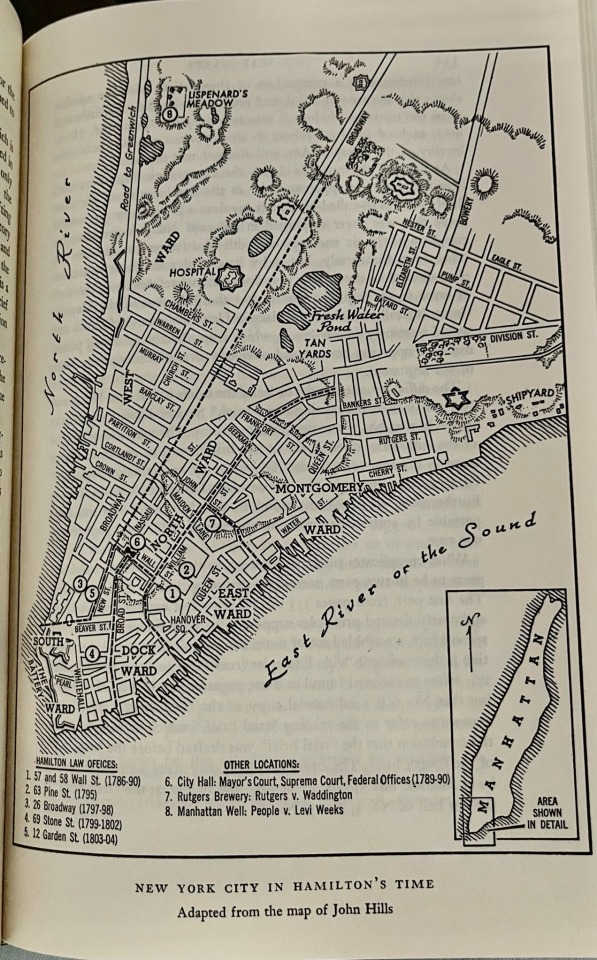
A map of Hamilton’s law offices as seen on page 333 of The Law Practice of Alexander Hamilton: Volume I, edited by Julius Goebel.
This map was a surprise find inside this volume, and a very insightful and helpful one at that. The key also includes other important locations, and years of operation for each office Hamilton held throughout his career.
#alexander hamilton#the law practice of alexander hamilton#historical maps#law history#historical alexander hamilton
43 notes
·
View notes
Video
Michigan Law passed in 1945 banning female bartenders
#tiktok#dearborn historical museum#michigan history#michigan#history#law history#us supreme court#workers rights#workers#labor#misogny#patriarchy
20 notes
·
View notes
Text
I just saw Max Fosh's newest video and I gotta know the backstory behind the following law:
No Trespassing (Unless You’ve Climbed A Tree To Point At A Fish) - Cornwall, 1603 (Bylaw)
#Max Fosh#law#laws#UK laws#UK law#UK#United Kingdom#England#uk history#law history#history#social experiment#help#need backstory#cornwall#bylaw#1603#no trespassing#trespass#trespasses#trespassing
4 notes
·
View notes
Text
Excerpt from Mr. Justice Brandies' concuring statement in Whitney v. California, concerning free speech.
Starting at Page 274 U. S. 375:
Those who won our independence believed that the final end of the State was to make men free to develop their faculties, and that, in its government, the deliberative forces should prevail over the arbitrary. They valued liberty both as an end, and as a means. They believed liberty to be the secret of happiness, and courage to be the secret of liberty. They believed that freedom to think as you will and to speak as you think are means indispensable to the discovery and spread of political truth; that, without free speech and assembly, discussion would be futile; that, with them, discussion affords ordinarily adequate protection against the dissemination of noxious doctrine; that the greatest menace to freedom is an inert people; that public discussion is a political duty, and that this should be a fundamental principle of the American government. [Footnote 2] They recognized the risks to which all human institutions are subject. But they knew that order cannot be secured merely through fear of punishment for its infraction; that it is hazardous to discourage thought, hope and imagination; that fear breeds repression; that repression breeds hate; that hate menaces stable government; that the path of safety lies in the opportunity to discuss freely supposed grievances and proposed remedies, and that the fitting remedy for evil counsels is good ones. Believing in the power of reason as applied through public discussion, they eschewed silence coerced by law -- the argument of force in its worst form. Recognizing the occasional tyrannies of governing majorities, they amended the Constitution so that free speech and assembly should be guaranteed.
Fear of serious injury cannot alone justify suppression of free speech and assembly. Men feared witches and burnt women. It is the function of speech to free men from the bondage of irrational fears. To justify suppression of free speech, there must be reasonable ground to fear that serious evil will result if free speech is practiced. There must be reasonable ground to believe that the danger apprehended is imminent. There must be reasonable ground to believe that the evil to be prevented is a serious one. Every denunciation of existing law tends in some measure to increase the probability that there will be violation of it. [Footnote 3] Condonation of a breach enhances the probability. Expressions of approval add to the probability. Propagation of the criminal state of mind by teaching syndicalism increases it. Advocacy of law-breaking heightens it still further. But even advocacy of violation, however reprehensible morally, is not a justification for denying free speech where the advocacy falls short of incitement and there is nothing to indicate that the advocacy would be immediately acted on. The wide difference between advocacy and incitement, between preparation and attempt, between assembling and conspiracy, must be borne in mind. In order to support a finding of clear and present danger, it must be shown either that immediate serious violence was to be expected or was advocated, or that the past conduct furnished reason to believe that such advocacy was then contemplated.
Those who won our independence by revolution were not cowards. They did not fear political change. They did not exalt order at the cost of liberty. To courageous, self-reliant men, with confidence in the power of free and fearless reasoning applied through the processes of popular government, no danger flowing from speech can be deemed clear and present unless the incidence of the evil apprehended is so imminent that it may befall before there is opportunity for full discussion. If there be time to expose through discussion the falsehood and fallacies, to avert the evil by the processes of education, the remedy to be applied is more speech, not enforced silence. Only an emergency can justify repression. Such must be the rule if authority is to be reconciled with freedom. [Footnote 4] Such, in my opinion, is the command of the Constitution. It is therefore always open to Americans to challenge a law abridging free speech and assembly by showing that there was no emergency justifying it.
Moreover, even imminent danger cannot justify resort to prohibition of these functions essential to effective democracy unless the evil apprehended is relatively serious. Prohibition of free speech and assembly is a measure so stringent that it would be inappropriate as the means for averting a relatively trivial harm to society. A police measure may be unconstitutional merely because the remedy, although effective as means of protection, is unduly harsh or oppressive. Thus, a State might, in the exercise of its police power, make any trespass upon the land of another a crime, regardless of the results or of the intent or purpose of the trespasser. It might, also, punish an attempt, a conspiracy, or an incitement to commit the trespass. But it is hardly conceivable that this Court would hold constitutional a statute which punished as a felony the mere voluntary assembly with a society formed to teach that pedestrians had the moral right to cross unenclosed, unposted, wastelands and to advocate their doing so, even if there was imminent danger that advocacy would lead to a trespass. The fact that speech is likely to result in some violence or in destruction of property is not enough to justify its suppression. There must be the probability of serious injury to the State. Among free men, the deterrents ordinarily to be applied to prevent crime are education and punishment for violations of the law, not abridgment of the rights of free speech and assembly.
1 note
·
View note
Photo
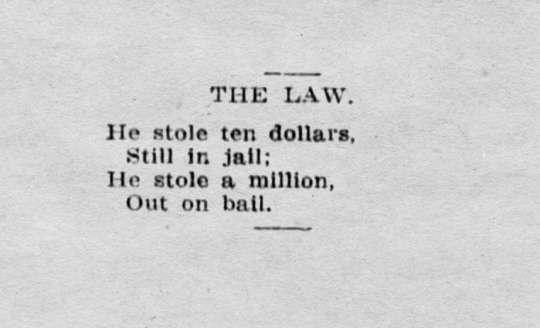
The Age-Herald, Birmingham, Alabama, September 12, 1913
9K notes
·
View notes
Text
My guys. the fact that so many of you are reblogging my post about Justice Thomas's desire to overturn Lawrence with exclamations of "how???" and with such lack of knowledge of our past is really disconcerting.
Gay sex was illegal federally in the United States until 2003 (when Lawrence was ruled on). Before Lawrence many MANY states had "Sodomy Laws" that prohibited gay sex within the state itself and criminalized homosexuality, often using targeting words like "pervert" to describe gay men much the way conservatives talk of "grooming" today. In fact prior to 1962 homosexual sex, as well as certain types of consensual sex acts between differently gendered couples, was a felony with the cost being lengthy jail time and/or hard labor. As of April 2022 14 states have STILL not repealed their sodomy laws. Keep that in mind.
In this last week of Pride month i am BEGGING you. LEARN SOME LGBTQ+ History. The history of your rights, your lack of rights, how recent it all is, how unstable your rights are RIGHT NOW. So many of what should now be our elders were killed during the AIDS Crisis. It is now up to you to learn these things yourself.
Wikipedia Article on LGBT History in the United States
LGBTQ Rights Timeline in America
#not dogs#lgbtq+#pride month#lawrence#roe v wade#queer history#lgbt history#seriously people you NEED to learn our past#14 states still have sodomy laws and justice thomas's desire to overturn lawrence should CONCERN YOU#i realize some of your are full ass adults that were born after lawrence but even 1962 is NOT LONG AGO AT ALL
22K notes
·
View notes
Text
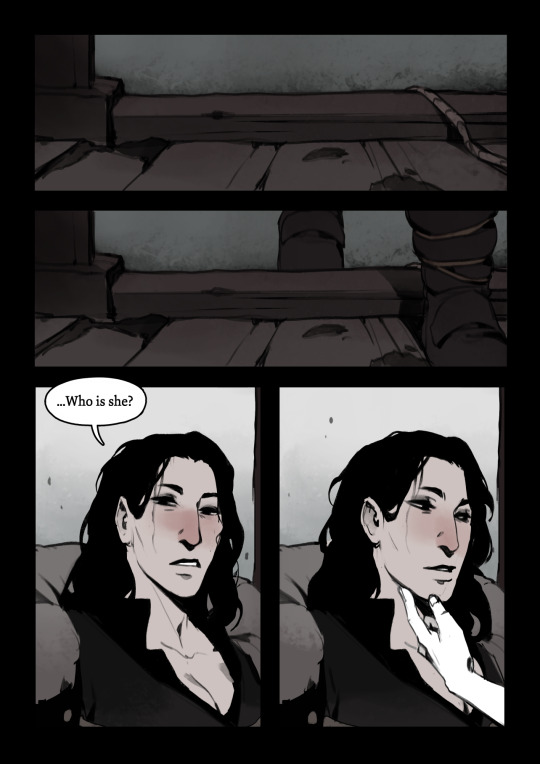

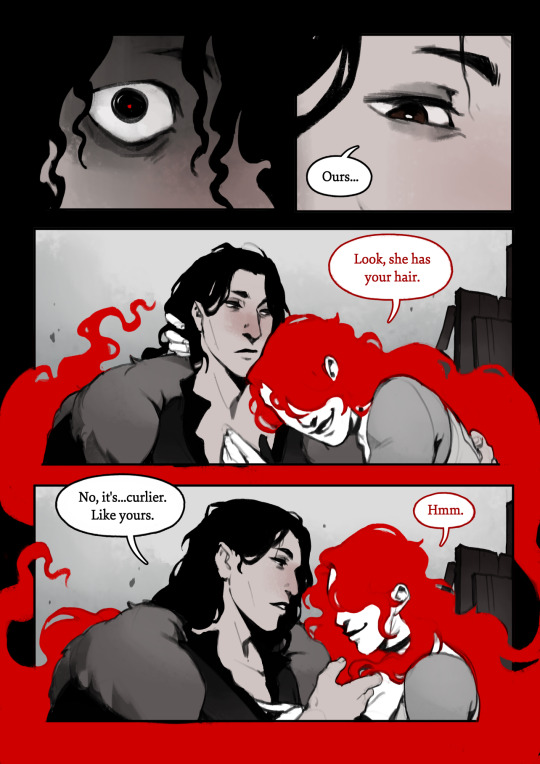
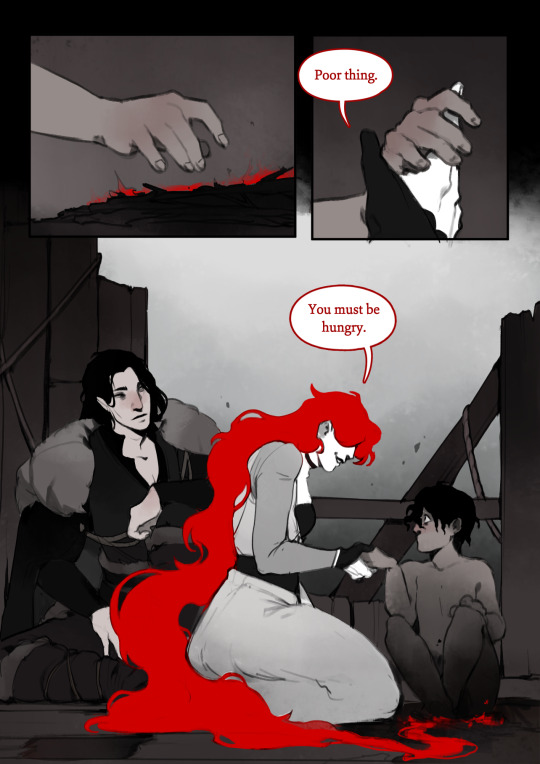
ashes to ashes.
a short comic about the day Ash was born.
Ash's story
Red and Wolf's story
notes:

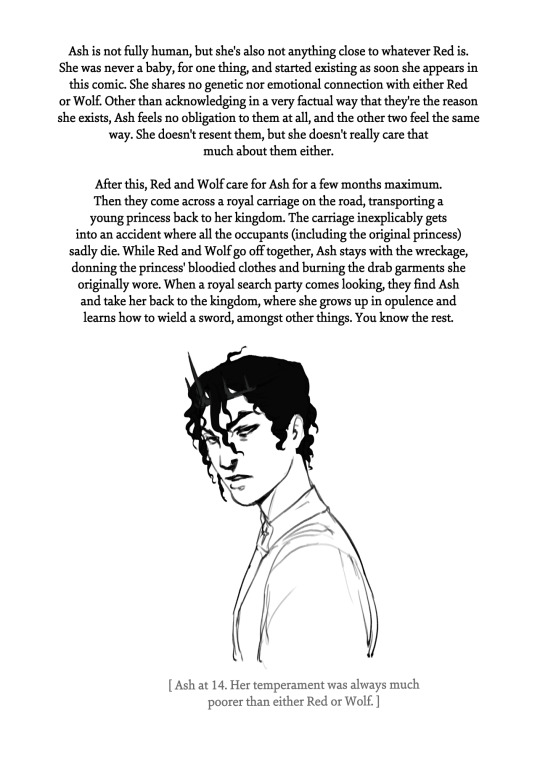
--
all my other comics
store
#we love a family with a storied history of loving women and committing mass murder#wolf is a couple years older than she was in her original comic but still just as smitten with red#i dont intend on making it a habit to connect my comics together into a shared universe#but i did make ash with the internal headcanon that she was the kid of red and wolf#if only to justify elements of her design#the gravity defying hair - the control over fire - the commitment to a black/white/red colour scheme#i wont be doing a backstory for snow btw since she's kind of just. a human being who grew up very entitled and spoiled#although maybe during her undead journey she unknowingly comes across her mothers-in-law in the mountains#(they like to live in remote snowy areas)#red would like her#thats all!#thank you for reading#sapphic art#comic art#stillindigo art#hearteaters#stillindigo comics
3K notes
·
View notes
Text
saw someone argue that the central defining feature of fanfiction is its attention to proper characterisation. man I don’t think you’ve read very much fanfiction
#I think you end up with these idealistic arguments when you don’t define fanfiction#in relationship to intellectual property law. like that actually is its central defining characteristic & this definition doesn’t make any#claims about quality or content or style (or characterisation) because all of those are variable#so I’m being kind of mean here because I think the op was just trying to describe a relationship between fanfiction and the source material#without grounding it in history or law. so you end up with these silly normative claims about what goes on in fanfiction#anyway not going to link the post I’m referencing because the person was just being mildly annoying on a post of mine#and I was being nosy on their blog. I was just caught way off guard by that argument because like. lol#fandom discussion
643 notes
·
View notes
Text
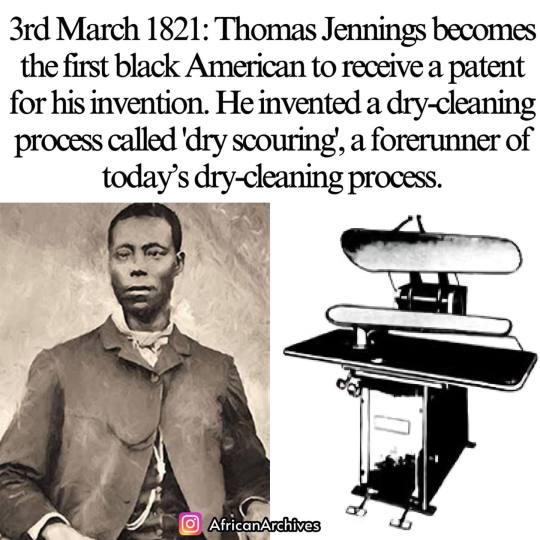
Thomas Jennings was a free man born in 1791 in New York City. He was 30 years old when he was granted a patent for a dry cleaning process. In his early 20s Thomas Jennings became a tailor, and later opened a dry cleaning business in the city. As a tailor. Jennings' skills were so admired that people near and far came to him to alter or custom tailor items of clothing for them. Eventually, Jennings reputation grew such that he was able to open his own store on Church street which grew into one of the largest clothing stores in New York City.
While running his business Jennings developed dry-scouring. He had many customers complain of their clothes being ruined by stains and so he began experimenting with cleaners and mixtures that would remove the stains without harming the material. He earned a large amount of money as a tailor and even more with his dry scouring invention and most of the money he earned went to his abolitionist activities. In 1831, Thomas Jennings became assistant secretary for the First Annual Convention of the People of Color in Philadelphia, PA.
Thomas L. Jennings Dry Scouring technique created modern day dry cleaning. Jennings was fortunate that he was a free man at the time of his invention. Besides all the other indignities and cruelties slaves had to face, they were also ineligible to hold a patent. Under the US patent laws of 1793 a person must sign an oath or declaration stating that they were a citizen of the USA. While there were, apparently, provisions through which a slave could enjoy patent protection, the ability of a slave to seek out, receive and defend a patent was unlikely. Later, in 1858, the patent office changed the laws, stating that since slaves were not citizens, they could not hold a patent. Furthermore, the court said that the slave owner, not being the true inventor could not apply for a patent either.
Thomas Jennings died in New York City in 1856.
#black history#Thomas Jennings#dry cleaning#inventor#tailor#abolitionist#New York City#patent law#slavery#abolitionist activities#dry scouring technique#historical injustice#patent discrimination#civil rights activism#African American entrepreneurship#19th century America
408 notes
·
View notes
Text
Elizabethan Privateering: English Privateering During the Spanish War 1585-1603 :: Kenneth R. (Raymond) Andrews
Elizabethan Privateering: English Privateering During the Spanish War 1585-1603 :: Kenneth R. (Raymond) Andrews
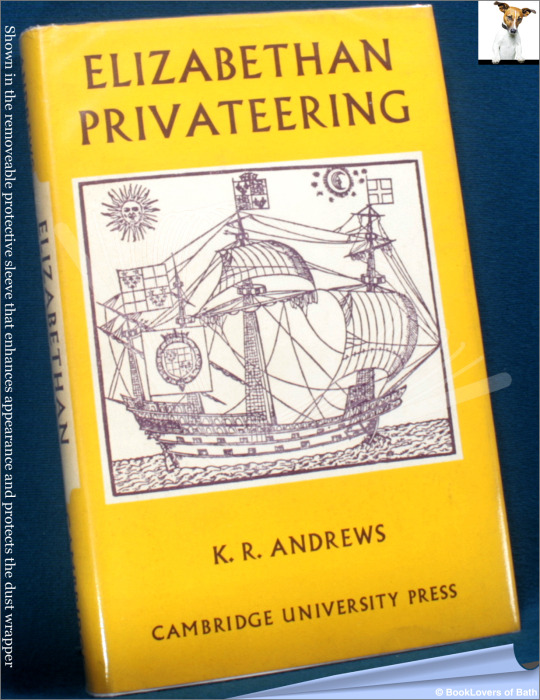
View On WordPress
#16th century history#anglo spanish war#books by kenneth r (raymond) andrews#british history#discovery west indies#elizabeth i#first edition books#history privateering#history royal navy#history west indies#law history#maritime history#military history#naval history#portuguese history#portuguese trades#shipping#sir thomas sherley#tudors#west indian history
0 notes
Text
Doing an assessment of materials for planning out Volume 3 of The American Icarus and am getting to dig into the details of Rutgers v. Waddington, (so fun having to read through 227 pages of documents and such), but this note at the top of the Editorial Detail of The Law Practice of Alexander Hamilton, Vol. 1, made me laugh:

The texts of documents of a substantive nature in Hamilton's hand are reproduced here as they stand in the manuscripts from which they have been transcribed. In other words, there has been no med-ding with abbreviations, punctuation, or spelling, except to remedy Hamilton's propensity not to dot his i’s
#what was it with your i’s alexander#the american icarus#historical alexander hamilton#the law practice of alexander Hamilton#amrev#law history#historical fiction#writers on tumblr#writeblrs
6 notes
·
View notes
Text
"Justice too long delayed
is justice denied."
Martin Luther King.
#quote of the day#quote of today#thought of the day#thought of today#martin luther king#mlk#civil righs#justice#law#order#law and order#law and disorder#freedom#liberty#ethics#fairness#judgement#common sense#lessons of history
3K notes
·
View notes
Photo
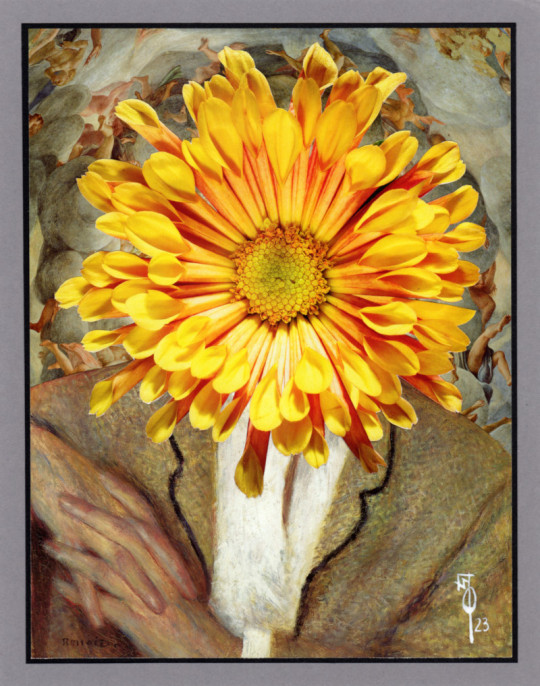
Wallace Polsom, Law of Attraction III (2023), paper collage, 21.2 x 26.7 cm.
#wallace polsom#law of attraction#paper collage#collage#collage art#art#artists on tumblr#analog collage#contemporary art#handmade collage#handcut collage#21st century#wallacepolsom2023#surreal#surrealism#art history
3K notes
·
View notes
Text
AU where Shen Jiu and Luo Binghe have a mutual restraining order, but then Shen Yuan tries to bring his new boyfriend home for dinner.
“A-Yuan he can’t come in the house.”
“Ge, I know you don’t like me dating, but-“
“No, he legally can’t come in the house. Or within 200 meters of me.”
#svsss#shen jiu#shen yuan#luo binghe#bingqiu#shen bros#I looked up restraining order laws for this. that’s in my search history now.#fish post
838 notes
·
View notes
Text
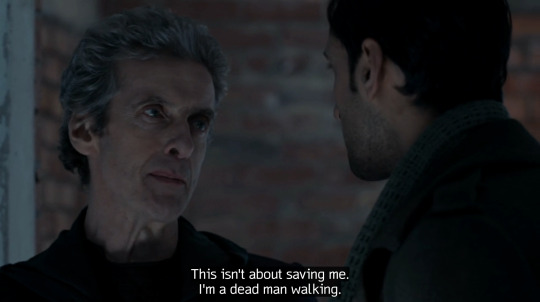
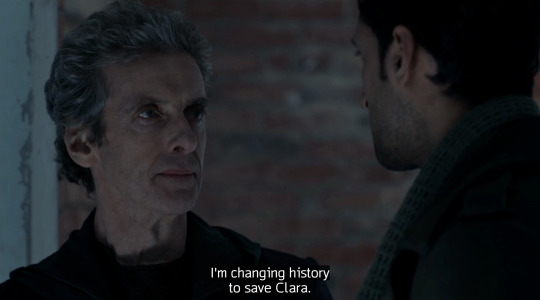

#hi. deadass what the fuck#hey remember when the doctor refused to break laws of time and history for MULTIPLE COMPANIONS? Why Is He Like This#doctor who#twelve#clara oswald#literally the death drive of the doctor is sooooooo bonkers in yonkers
604 notes
·
View notes
Text


Coffee shops & studying come as a package…
#aesthetic#dark academia#photography#dark and moody#places#dark paradise#classy academia#indie#dark feed#darkcore#moodboard#study aesthetic#aesthetic quotes#law#history#university aesthetic#study motivation#books & libraries#studyblr#studyspo#chaotic academic aesthetic#law student#dark moodboard#coffeshop#studyinspo
3K notes
·
View notes